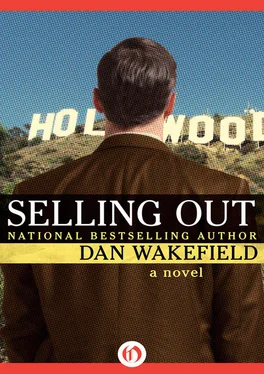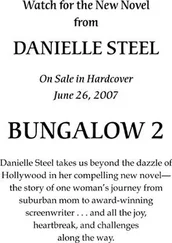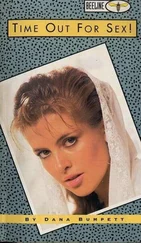“Jack and Laurie?”
“Jack and Laurie. Mmm. Let’s see. Laurie and Jack. No. Doesn’t work. Tell me, how would you describe the subtext of your story?”
“The what?”
“The subtext. What’s going on underneath. What’s really causing that argument Jack and Laurie are having.”
“Oh, well, it’s still the first year of their marriage. Like they say, ‘the first year’s the hardest.’”
“I love it,” said Mellis.
“What?”
“That’s our title. ‘The First Year’s the Hardest.’”
“For God sake, that’s a cliche! As old as the hills.”
“As a title, it’s new. It’s fresh. It kind of winks at you, lets you in on a little secret. Dramatic irony, really—the audience knowing more than the characters. Amigo , it has everything.”
“‘The First Year’s the Hardest,’” Perry said slowly, rolling it a bit in his mouth. It felt awkward. Still, it wasn’t gross. It could be worse. After all, this was television.
“I guess I don’t mind it that much,” he sighed.
“It’s a winner,” said Archer Mellis as they came down out of the hills. “Trust me.”
The awful moment was upon them.
Archer had prolonged it as long as possible by building up Perry’s credentials as a “quality” writer, and praising his intrepid character as proved by his coming out for this meeting all the way from Vermont, making it seem as if the journey had been made by dogsled and wagon train.
Finally, the network people had politely posed the inevitable question.
They knew of course all about Perry’s prize-winning story and its wonderful, warm qualities, the appealing young characters, the compelling atmosphere, the whole ball of wax.
Now they wanted to know the plot.
Perry pretended he wasn’t in the room.
He looked out the window and waited to hear whatever spur-of-the-moment cock-and-bull story Mellis came up with. To ease his own sense of acute embarrassment, Perry reminded himself as he gazed into the blank blue morning that this whole thing would later make a marvelous story for some faculty cocktail party back at Haviland. He must remember every word and nuance, not only of Mellis’s improvised phony sales pitch, but of the acid response from the network people whose time had been so uselessly wasted. The whole thing would probably make Mellis persona non grata at the network, and perhaps even bring a quick end to his meteoric career.
But there was only silence.
Perry could sense the anticipation from the network people, who had been more than courteous through this whole sham, but who could surely not be expected to carry on the pretense without even a response to their specific and perfectly reasonable question.
Was Mellis trying to purposely insult them?
Had the young executive cracked under the strain and fallen into a coma or trance? Perry could stand it no longer, and cautiously shifted his glance to Archer Mellis.
The youthful hope of Paragon TV was intently scraping something from the bottom of one of his combat boots with an elaborate Swiss Army knife. With a final twist, he seemed to pry loose the offending substance, then he held it up and squinted at it, and shook his head with a wry smile.
“Bubble gum,” he said. “Double Bubble, unless I miss my guess.”
He stood up, took a few steps toward a wastebasket, and casually tossed in the congealed bit of gum, as the three network people looked on with evident sympathy and fascination. Mellis sat back down and held the Swiss Army knife in front of his eyes, closing and then opening again various of its myriad blades and hooks and screwlike appendages.
Then he spoke.
His voice was pitched low, almost a whisper, so that Perry as well as the network people had to lean toward him to hear his words. If anyone had been watching him without being able to hear, they would have assumed he was giving instructions in the use and care of the marvelous knife. This effect seemed to make his statement about the TV pilot all the more dramatic.
“We are not going to bore you by laying out the bare bones of a plot. The ideal young married couple squabbles over in-laws. Jack flips out when Laurie wants to postpone pregnancy till she finishes law school. Any one of a thousand hacks could pitch you those standard story lines and then grind them out like sausages. We are offering something unique. Character. Style. The shock of recognition. We are offering the texture and quality that have made Perry Moss a proven, prize-winning writer of American fiction, translated into the medium of television. We are not offering pap. We are offering you a challenge, daring you to be different by being the best. All I am going to tell you about our project is the title. Either you will get it or you won’t.”
Mellis snapped shut all the projections of the Swiss Army knife except one. It was the nail file.
“We call it—‘The First Year’s the Hardest,’” he said.
Then he began to file his nails.
There was a split second of silence, a hairsbreadth portion of time suspended when Perry could feel himself cringe, awaiting well-deserved hoots and jeers.
What he heard, however, was an audible intake of breath, something like a sudden gasp that sounded like a response to a thrill—most likely one of an erotic nature.
“I like it,” Amanda LeMay said huskily.
She stood up, smoothing her hands over her hips, licking her tongue lightly over her lips, as she began to slowly walk back and forth, smiling and nodding as if bringing all aspects of the title into balance and reaffirming its rightness. From the time he saw her as he first walked into the room, Perry had trouble keeping his eyes off this beautifully proportioned woman in the tight leather skirt and loose, puffy-sleeved sweater. She reminded him of Faye Dunaway in the movie Network , yet seemed, if such were possible, even sexier, perhaps a bit younger, and far more gracious and less aggressively grating than the character Dunaway created.
“For sure,” said Todd Robbie with a big grin, “it really does sing.”
Robbie was a friendly guy in his mid-thirties who wore faded jeans with suspenders and a long-sleeved checkered shirt, as if he’d just come in from a hayride. He seemed to agree with Amanda on everything, yet Perry hadn’t figured out whether his deference to her came from a feeling of chivalry to a beautiful woman, or the toadying of a subordinate.
It was hard to psych out the power hierarchy among the network people, except for the fact—or so Perry automatically assumed—that Harry Flanders, even though he didn’t say anything, was the real head honcho. Perry assumed that because he was the only man wearing a suit . Also, he was the oldest.
Smiling warmly, Flanders suddenly spoke.
“Well, maybe the first year is the hardest, come to think of it. Why, I often say to Marge—‘Marge, if we lived through that honeymoon, we can live through most anything!’”
No one seemed to hear him.
“‘The First Year’s the Hardest,’” Amanda repeated, almost in a trance.
Todd chimed in to say, “You’re right, it really works, Amanda.”
“This young married couple,” Amanda went on, seemingly oblivious to everyone else, caught up in her own fascination for the subject, “they’re going to continue to grow. We’ll see their real-life story evolve. That evolution will in a sense be what the series is about , am I right?”
“I wish I had said that myself,” Archer Mellis assured her.
“Then we have a problem,” Amanda sighed.
Perry was feeling dizzy. Trying to follow the sense of the meeting was like riding a roller coaster. The dramatic ups and downs, at least to a newcomer, were not only emotionally exhausting, but mentally disorienting.
Читать дальше












